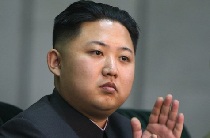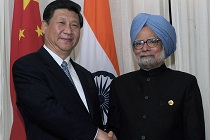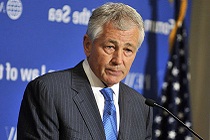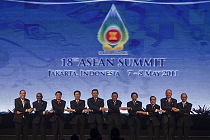From Lady Hughes to Enrica Lexie
The ‘Lady Hughes incident’, as a confrontation between British and Chinese authorities in 1784 came to be called, perhaps holds lessons for the ongoing dispute between India and Italy. Aniruddha Bose blogs
 Courtesy:
Courtesy:
The ‘Lady Hughes incident’, as a confrontation between British and Chinese authorities in 1784 came to be called, perhaps holds lessons for the ongoing dispute between India and Italy. Aniruddha Bose blogs
 Courtesy: Courtesy: Petersnoopy/Flickr
Courtesy: Courtesy: Petersnoopy/Flickr
The new provocations from Pyongyang heighten the risk of a military showdown with the U.S., South Korea and Japan. China, the only power with sway over the regime, is exercising limited options for peace on the peninsula.
 Courtesy: Ministry Of External Affairs, India
Courtesy: Ministry Of External Affairs, India
Indian foreign policy has not yet addressed the ramifications of Chinese economic dominance in BRICS. Nor have we matched China’s engagement within the group to ensure that the BRICS vision of a new international order for emerging economies actually works in their favour.
 Courtesy: Slick-O-Bot/Wikimedia Commons
Courtesy: Slick-O-Bot/Wikimedia Commons
The five-point formula put forth by newly-elected Chinese President Xi Jinping to bolster bilateral relations with India signifies once again that Beijing is increasingly going for a semblance of stability in relations with its largest neighbour, without making any strategic concessions on contentious issues.
 Courtesy: jappalang/WikimediaCommons
Courtesy: jappalang/WikimediaCommons
In recent years, there has been a growing interest in Gandhian philosophy and values among Chinese citizens. Can the Mahatma’s philosophy of non-violence, social harmony, and environmental protection be applied to address issues facing present-day China?
 Courtesy: Pete Souza/The White House
Courtesy: Pete Souza/The White House
The announcement of the Pacific pivot by the U.S. in 2001 has led to several nations making bold political moves. However, the U.S. isn’t yet ready to be a regional protector against China. What does Washington have to do to prepare itself for the Pivot?
 Courtesy: U.S. Department of Defense
Courtesy: U.S. Department of Defense
The nomination of Chuck Hagel for the post of the U.S. Defense Secretary has garnered severe criticism from Israel and the Jewish lobby. Given the geopolitical changes unfolding in the Middle East and the rest of Asia, what will Hagel’s assumption of office mean for Israel, India and the rest of the world?
 Courtesy: Shwkyn231/Flickr
Courtesy: Shwkyn231/Flickr
The year 2012 has been a busy one for foreign policy: from escalating disputes in the South China Sea to alternate financial instruments from the emerging world. India’s foreign policy too has its shown strengths and weaknesses. We present our top foreign policy Hotspots, Sweet spots and Blind spots for 2012.
 Courtesy: Abhisit Vejjajiva/WikimediaCommons
Courtesy: Abhisit Vejjajiva/WikimediaCommons
At present, the ASEAN is at a critical phase in its dealings with China – the regional hegemon with growing heft. Why do ASEAN nations need to collaborate and find innovative ways to deal with its giant neighbour.

New Delhi has actively worked with Beijing to address its massive bilateral trade deficit. However, it has another option. India can seek greater economic integration with ASEAN and substitute its imports from China with that of ASEAN. The India-ASEAN Summit on December 20 would be a good place to start.